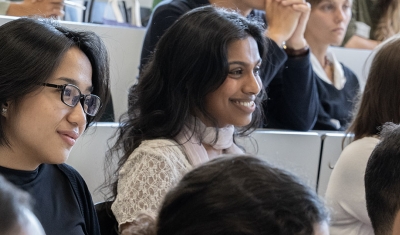26 February 2024
In his new book International Law and the Principle of Non-Intervention. History, Theory, and Interactions with Other Principles (Oxford University Press), our Swiss IHL Chair Professor Marco Roscini dissects the principle of non-intervention – a core principle of international law and a pillar of international relations.
‘The determination of this principle’s exact content has remained, until now, an enigma. With this new book, I precisely explore what constitutes an 'intervention' in international law and when interventions are unlawful’ explains Professor Roscini.
Drawing on an extensive array of primary documents and examining over 200 intervention cases spanning from the 18th century to the modern era – including those in Libya, Mali, Iraq, Syria, Yemen, South Sudan, and The Gambia –, the book provides a meticulous analysis of this principle and its connections to fundamental notions of international law such as sovereignty, the use of force, self-determination, and human rights protection.
The last chapter of the book also explores this principle in the information age and discusses cyber operations as a new means of coercion in the domestic affairs of states – a subject Professor Roscini addresses in his research as IHL Chair at the Geneva Academy.
‘This new book will be a key resource for academics, diplomats, and legal professionals seeking clarity on this core principle of international law. The chapters exploring the interactions of the principle of non-intervention with the principle of self-determination and the respect for international human rights law and international humanitarian law are of particular interest for our students and community’ underlines our Director Professor Gloria Gaggioli.








